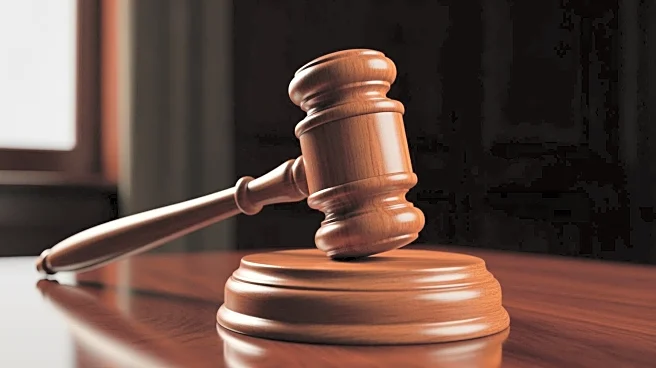What's Happening?
Speaker Mike Johnson has decided to recall the U.S. House of Representatives back into session after a prolonged government shutdown. This decision comes after nearly eight weeks of inactivity, during
which the House was closed, leaving numerous legislative tasks unaddressed. Lawmakers are set to return to Washington, D.C., with a primary focus on voting to reopen the government. The shutdown has been marked by Johnson's refusal to convene the House, a move that has been criticized for sidelining the legislative branch and deferring authority to the executive branch. The reopening of the House will also involve addressing other pending issues, such as the release of the Jeffrey Epstein files and the swearing-in of Arizona's Rep.-elect Adelita Grijalva.
Why It's Important?
The decision to recall the House is significant as it marks the end of the longest government shutdown in U.S. history. The shutdown has had widespread implications, affecting government operations and services. Speaker Johnson's approach has been seen as a departure from traditional legislative practices, raising concerns about the balance of power between the legislative and executive branches. The reopening of the House will test Johnson's leadership and ability to manage the legislative backlog, including contentious issues like the Epstein files. The shutdown has also highlighted the challenges of governance in a polarized political environment, with implications for future legislative negotiations and the functioning of Congress.
What's Next?
As the House reconvenes, lawmakers will prioritize voting to reopen the government, which is expected to be the first order of business. The session will also address other pending legislative matters, including the swearing-in of Rep.-elect Adelita Grijalva and discussions on the Epstein files. Speaker Johnson's leadership will be under scrutiny as he navigates these issues and attempts to restore normal legislative operations. The reopening of the House may also lead to renewed negotiations with the Senate and the executive branch to resolve the shutdown and prevent future occurrences.










